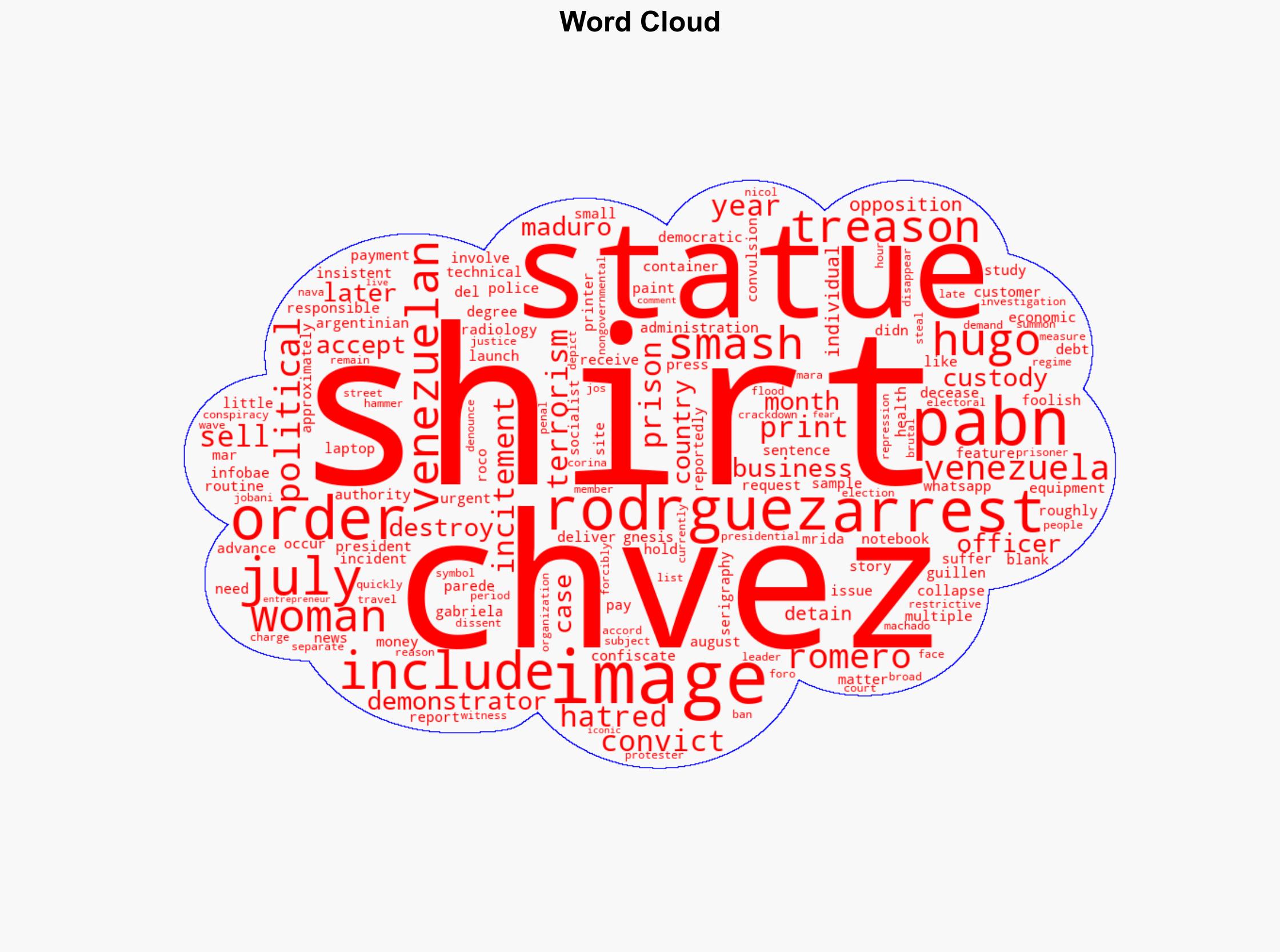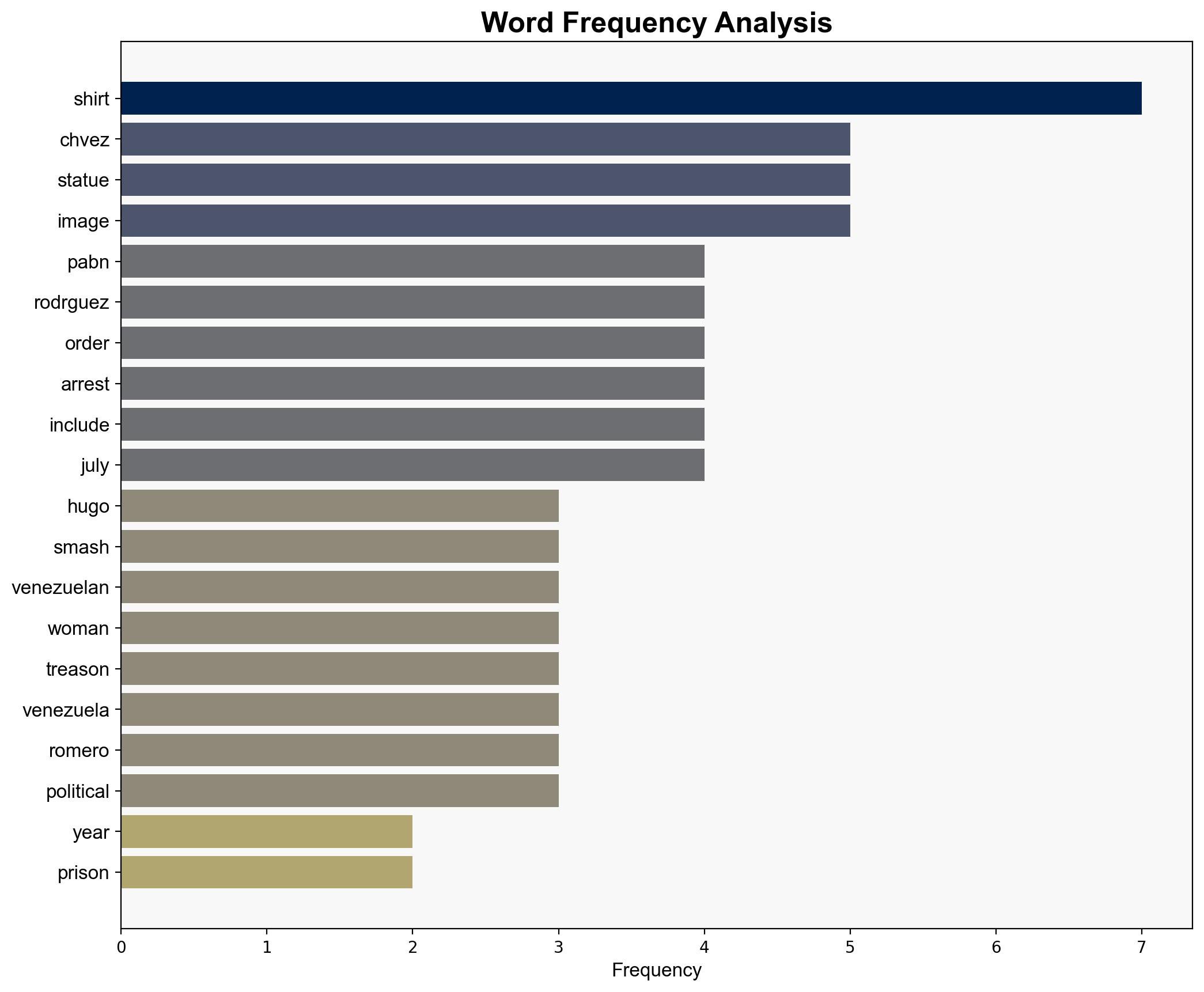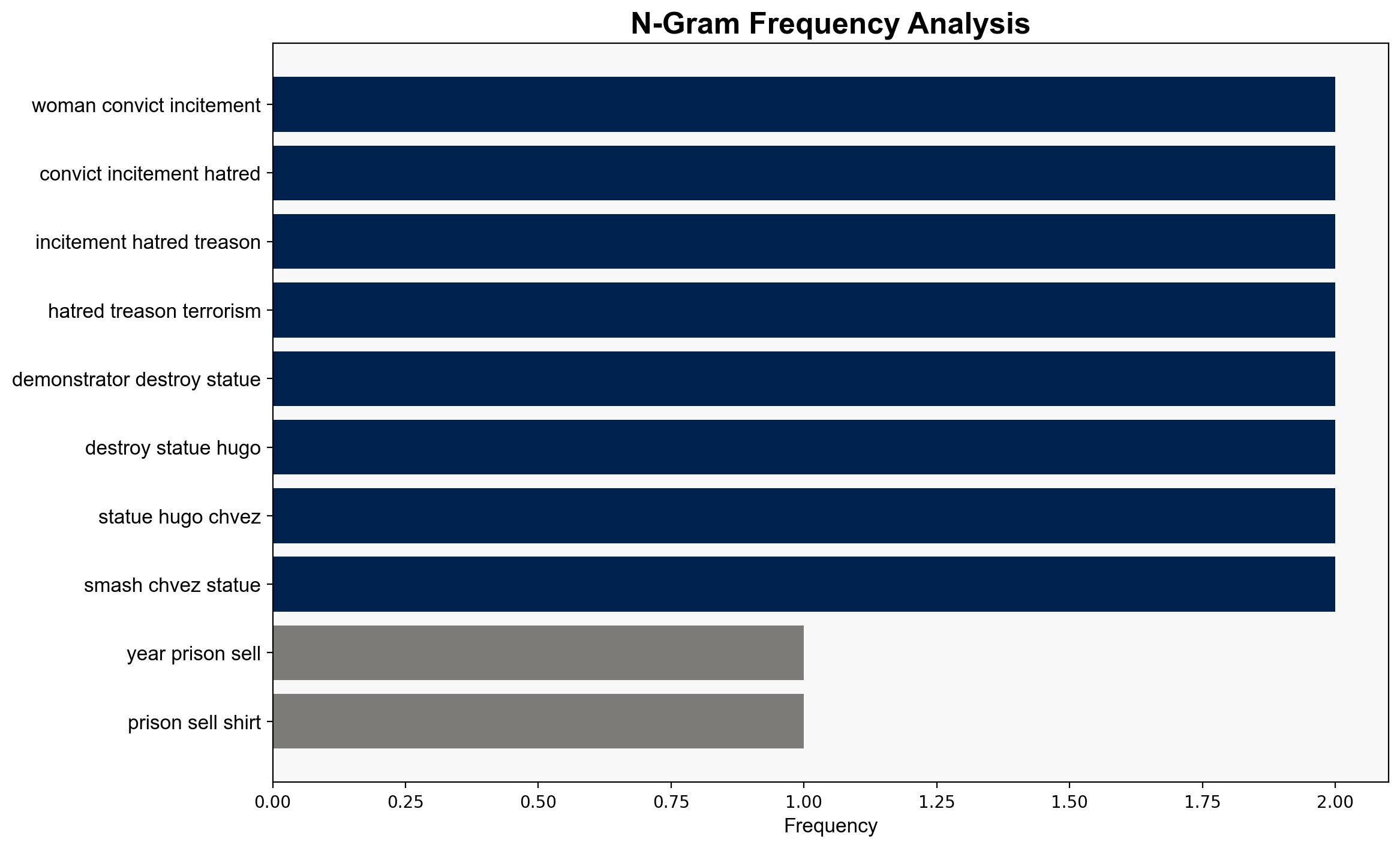10 Years in Prison for Selling a T-Shirt of a Hugo Chvez Statue Getting Smashed – Reason
Published on: 2025-07-28
Intelligence Report: 10 Years in Prison for Selling a T-Shirt of a Hugo Chávez Statue Getting Smashed – Reason
1. BLUF (Bottom Line Up Front)
The most supported hypothesis is that the Venezuelan government is using the case of Génesis Gabriela Pabón Parede and Rocío del Mar Rodríguez Guillén to suppress dissent and reinforce political control through fear. This is supported by the broader context of increased repression and the targeting of symbolic acts of protest. Confidence level: High. Recommended action: Monitor for further signs of political repression and consider diplomatic channels to address human rights concerns.
2. Competing Hypotheses
Hypothesis 1: The Venezuelan government is using the case to suppress dissent and maintain political control by making an example of individuals involved in symbolic acts against the regime.
Hypothesis 2: The case is primarily driven by internal security concerns, with the government perceiving the act as a genuine threat to national stability and responding with harsh penalties to deter similar actions.
Using the Analysis of Competing Hypotheses (ACH) 2.0, Hypothesis 1 is better supported by the pattern of increased arrests and repression of opposition figures, as well as the symbolic nature of the act (destroying a Chávez statue), which aligns with the regime’s historical sensitivity to challenges to its legitimacy.
3. Key Assumptions and Red Flags
Assumptions for Hypothesis 1 include the belief that the regime prioritizes political control over genuine security threats. For Hypothesis 2, the assumption is that the regime perceives symbolic acts as direct threats. A red flag is the lack of independent verification of the charges and the potential for bias in reporting from opposition-aligned sources. Missing data includes detailed legal proceedings and the regime’s internal communications regarding the case.
4. Implications and Strategic Risks
The case could escalate into broader unrest if perceived as part of a pattern of unjust repression, potentially leading to increased international condemnation and sanctions. Economically, continued repression may deter foreign investment and exacerbate Venezuela’s economic challenges. Psychologically, fear could suppress public dissent but also fuel underground resistance movements.
5. Recommendations and Outlook
- Monitor the situation for signs of escalating repression or unrest. Engage with international human rights organizations to gather independent assessments.
- Scenario-based projections:
- Best Case: International pressure leads to the release of the individuals and a reduction in political repression.
- Worst Case: Increased repression leads to violent unrest and further destabilization of the region.
- Most Likely: Continued targeted repression with sporadic international condemnation and limited impact on the regime’s stability.
6. Key Individuals and Entities
Génesis Gabriela Pabón Parede, Rocío del Mar Rodríguez Guillén, Nicolás Maduro, Jobani José Romero Nava.
7. Thematic Tags
national security threats, human rights, political repression, regional focus




